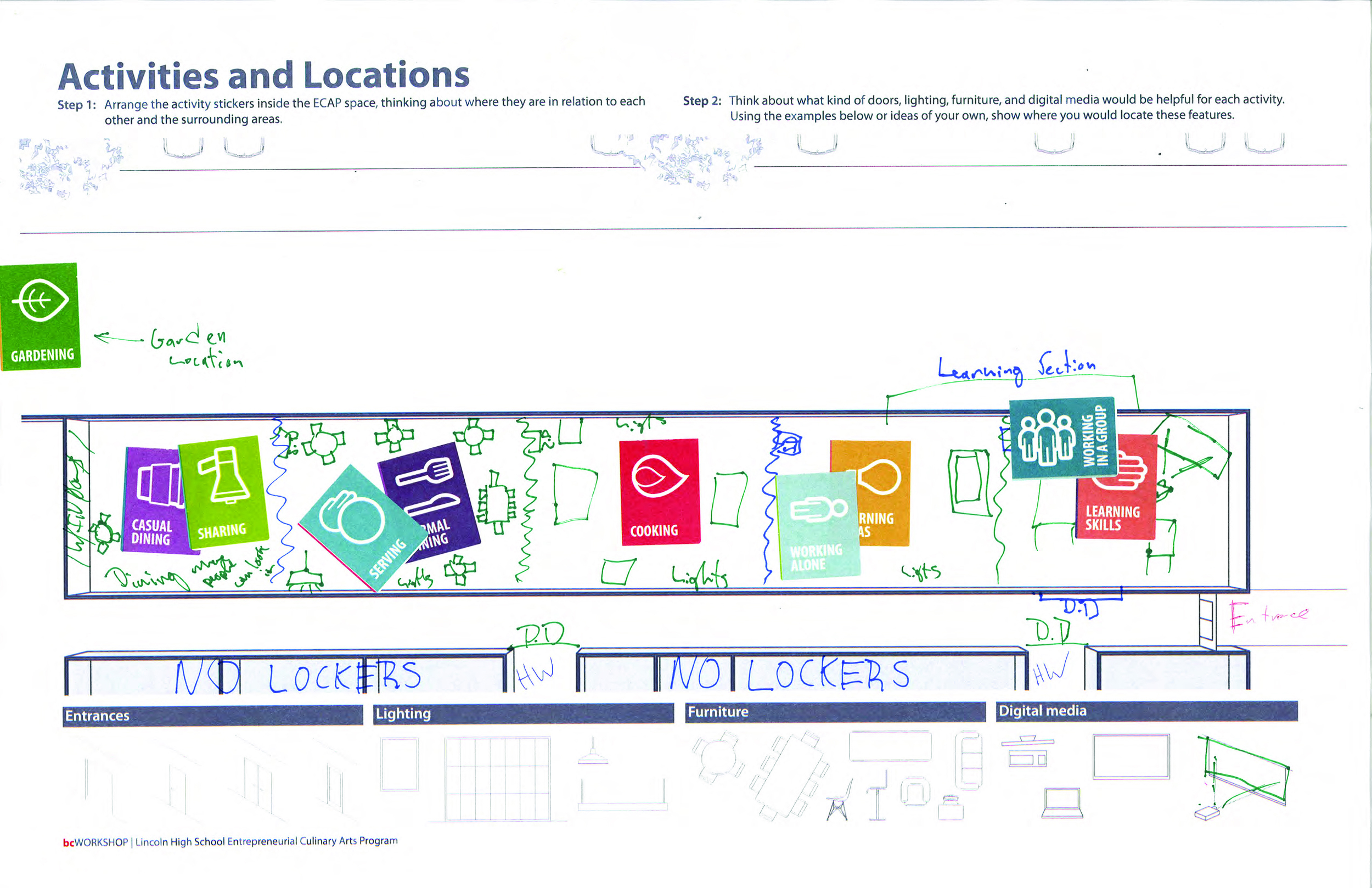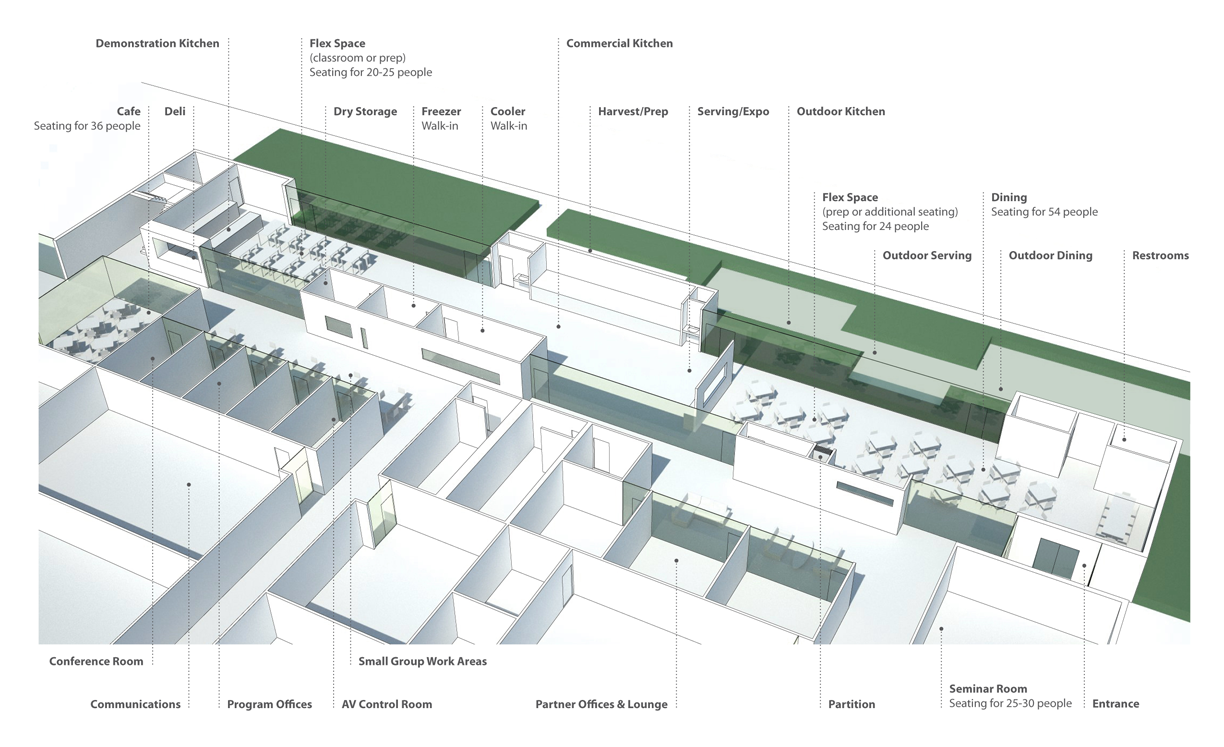Learn more about our work in Dallas.
Early in 2012, bcWORKSHOP led a community engagement process to inform the design of Lincoln High School Entrepreneurial Culinary Arts Program, a new pilot project created by local nonprofit Get Healthy Dallas and the Dallas Independent School District to address health and economic development in South Dallas.
The program stems from research undertaken by Stacy Cherones and the SMU Ethics Design Team. After connecting with Robert Foster, a South Dallas community advocate, and the Turner Twelve, a student mentoring program made up of twelve high school students at Lincoln High School, the research team developed a detailed understanding of the dynamics of food access, preparation, and sharing in the focus community. The team recommended piloting a four-year culinary arts program with an emphasis on nutrition, business and entrepreneurship. Dallas Independent School District agreed to pilot this concept at Lincoln High School, and the program will accept its first students starting in the fall semester of 2012.
bcWORKSHOP partnered with Peter Brown Architects, a local firm with extensive experience in school design, to plan and run six design workshops with project stakeholders including students, faculty, staff, school district officials and community members. In the first set of workshops, participants created a set of statements that define the project’s crucial elements and create accountability in the design process. Following a tour of high school culinary programs in Frisco, Allen and North Dallas, participants worked in groups to develop boards that represent the identity of the program and identify important relationships to consider within both the school and the surrounding neighborhood. Ultimately, the stakeholders created 15 different visions for the core program facilities.
This work provided direction for a design that can be completed in several different phases as funding allows. The core program facilities include a demonstration kitchen, professional kitchen, and restaurant, and are the minimum required for a successful program. They can be expanded to provide support spaces for the program, while adjacent classrooms can be allocated to create a learning community within the larger school. The renovation will transform the existing, outdated facilities into spaces that resemble real working conditions in the culinary industry, facilitate collaborative learning in a 21st Century environment, and build on Lincoln’s rich history within the community.
![[bc]](http://images.squarespace-cdn.com/content/v1/5248ebd5e4b0240948a6ceff/1412268209242-TTW0GOFNZPDW9PV7QFXD/bcW_square+big.jpg?format=1000w)









